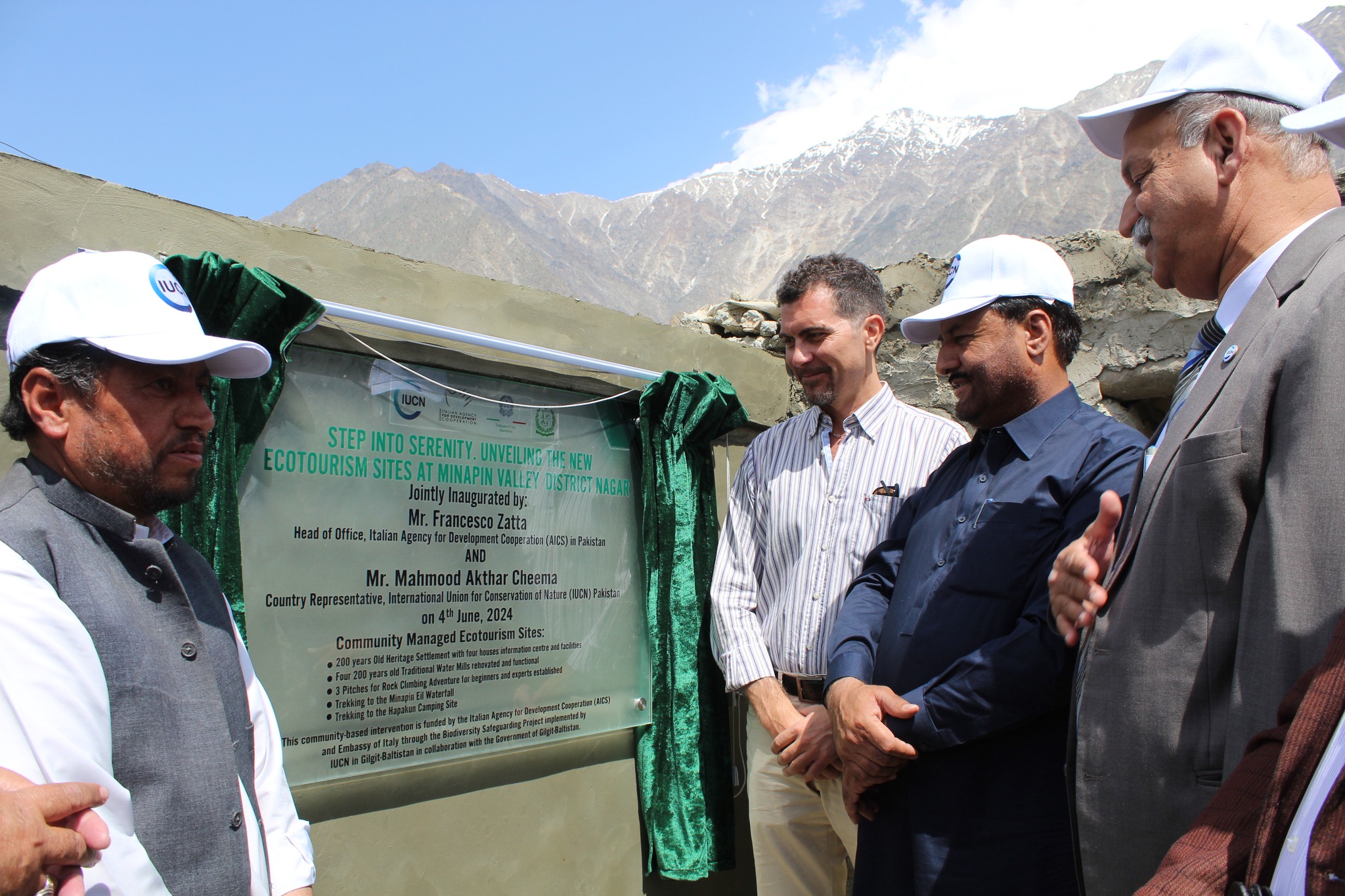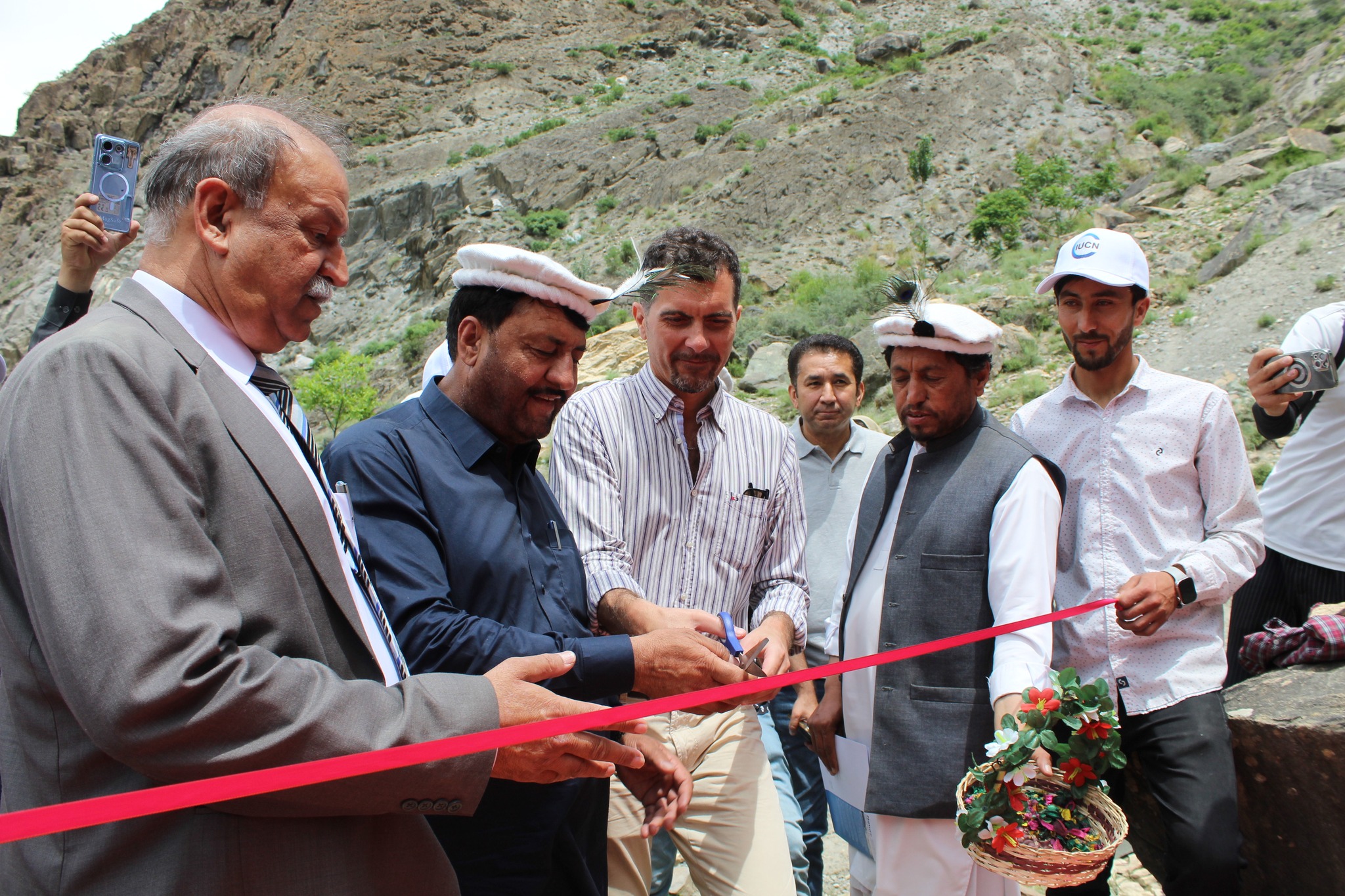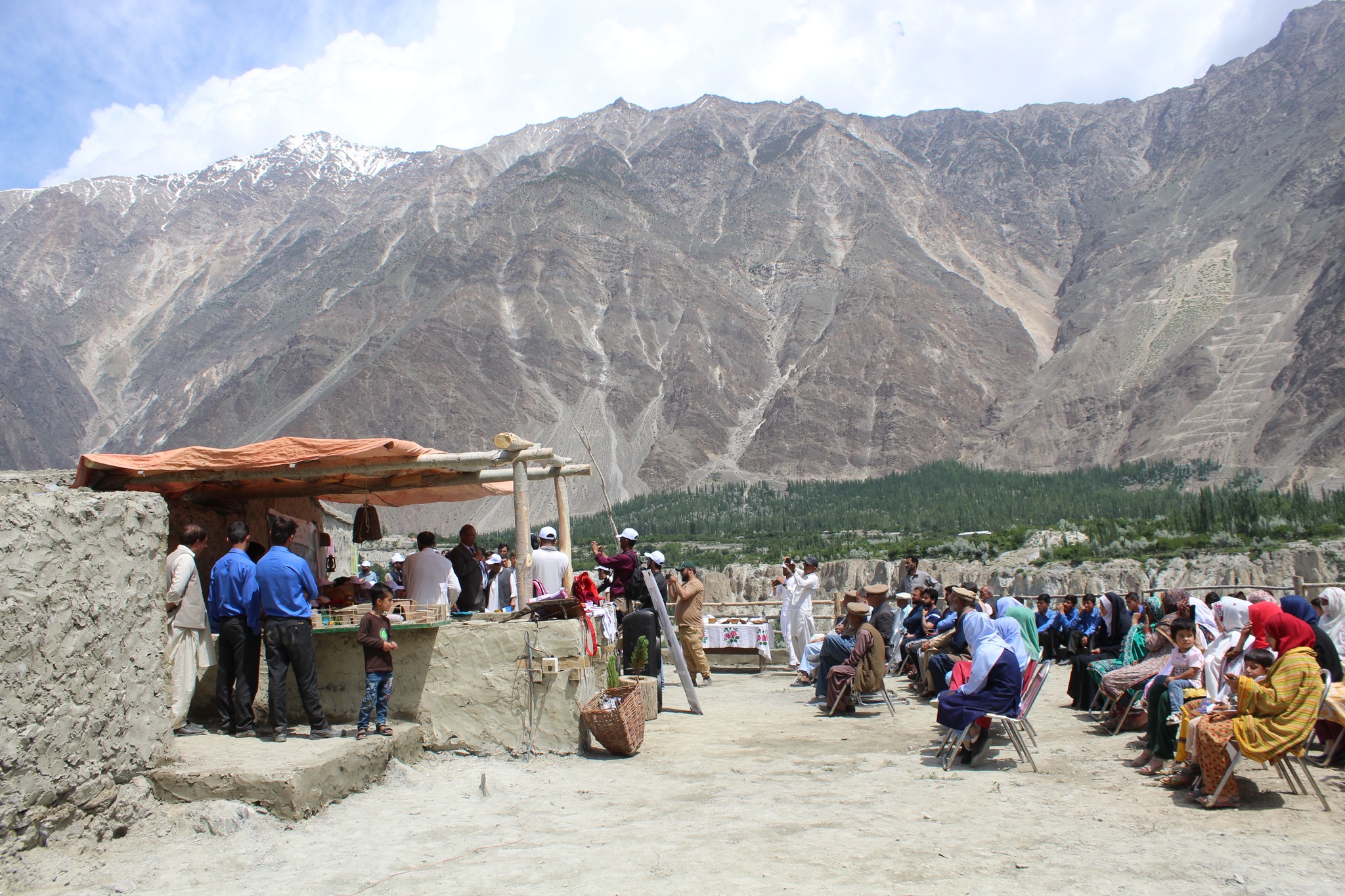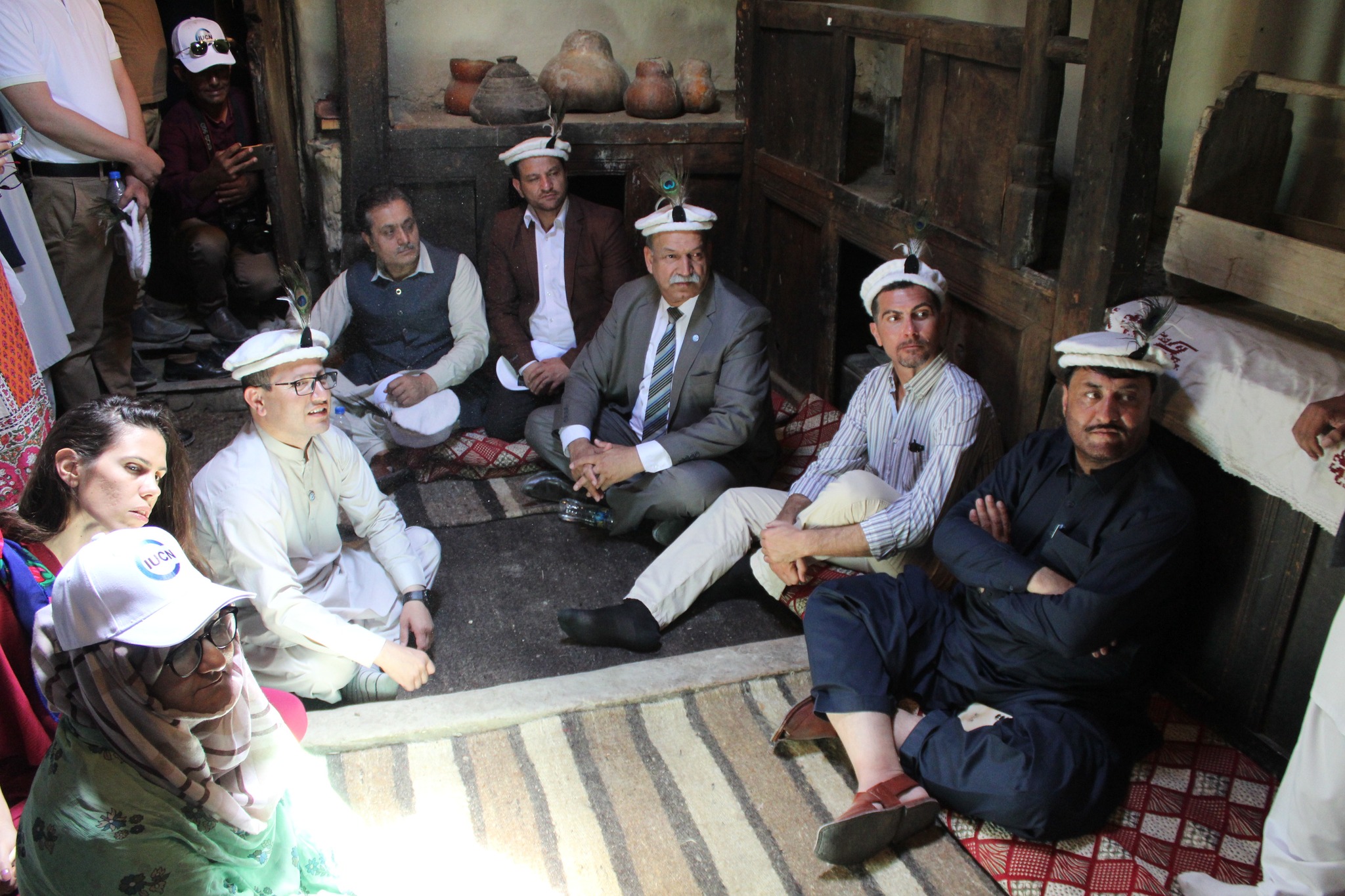AICS Islamabad successfully carried out a monitoring mission to Gilgit-Baltistan, in the framework of “Global Assessment of the State of Nature and Biodiversity Safeguarding Actions in the Northern of Pakistan” project. Thanks to the coordination effort provided by IUCN (International Union for Conservation of Nature), AICS delegation had the opportunity to meet communities of Minapin, Ghulkin and Khunjerab villages where several sites have been restored for biodiversity safeguarding and eco-tourism promotion.
Partnership with IUCN represents a perfect combination between the three different principles from the Theory of Change that AICS Islamabad strategy is pursuing: adaptation to climate change, cultural and natural heritage protection, support to livelihood for communities living in remote areas. A relevant contribution to this partnership is given on a daily basis by local authorities working on biodiversity and tourism in Gilgit-Baltistan. During 4 days of mission, the Minister of Tourism of GB Region and Representatives from GB Department for Wildlife and Parks accompanied AICS delegation, offering insights about the work jointly delivered with IUCN and local communities, addressing project’s ownership in partnership with villagers and quality accountability by local partners, methodological pillars of the Italian Cooperation in Pakistan.
Minapin community welcomed AICS delegation in Nagar district, 3,000 people living in a beautiful territory surrounded by amazing landscapes, a community hardly committed to promoting their beauties enhancing hospitality, traditional production of food and items, set-up of trekking paths and touristic attractions. A launch ceremony inaugurated different renovation works financed by the italian project: an old house settlement to be used as guesthouse, a visitor center located at the entrance of the village, 4 historical water mills, 3 climbing rock sites in addition to support provided for the establishment of local associations aiming at promoting products and tourism. Guided by CWF – Community Welfare Foundation as local partner, AICS Islamabad delegation had the opportunity to see the achieved results of the project and talk with beneficiaries – stories of resilience and strong cultural identity, a community aware of its traditions and the path to make its territory more accessible for a sustainable tourism.
Ghulkin village is located in the district of Hunza, nestled between mountains of Karakoram, counting 1,250 residents, close to major attractions such as Borit lake and Passu glacier. Thanks to the implementation provided by Ghulkin Local Agency for Development (GLAD), the italian project funded the restoration of a 900 years old traditional house (for guesthouse purpose), the establishment of an information center and training courses for tourist guides and women in embroidery and cuisine. Ghulkin community showed to AICS delegation a clear inclination for hospitality, very-well aware about the necessity to promote a sustainable tourism for economic growth.
After Ghulkin, very close to China border, AICS Islamabad delegation paid a visit to Khunjerab village, where the italian project supported activities in favor of biodiversity. 4 different “biodiversity corridors” functioning as bridges on Khunjerab river have been located to facilitate the passage of animals and persons, also providing sightseeing for tourists. Khunjerab Villagers Organization (KVO) decided corridors placement in partnership with Local Authorities and guided AICS Islamabad to the entrance of Khunjerab National Park, where the whole community gathered for a ceremony, with a relevant female participation. KVO contribution to project activities was also financial, a significant step not only forward ownership and accountability but also highlighting the community aim to preserve biodiversity and natural resources in order to enhance economy and touristic offer.



